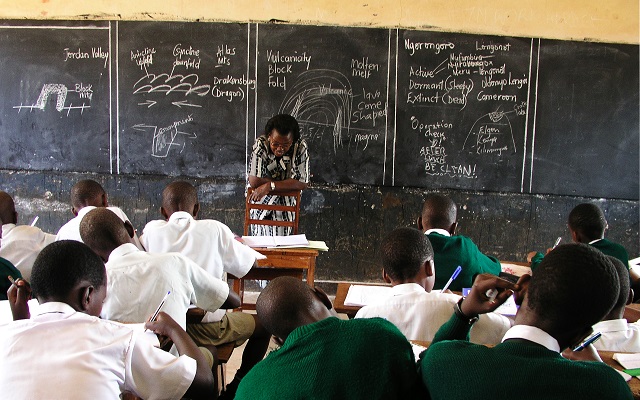
First days of the term often mean full sickbays in schools
Kampala, Uganda | EVELYN AINEMBABAZI | Parents are often confused by the changes and diseases children are diagnosed with during the first days of reporting back to school for a new term. This is in most cases physically seen among children losing weight.
A child who weighed, for example, 60kgs when in holiday suddenly cuts weight to 55kgs. This is often attributed to change of diet and also the new environment which may affect them immediately. The argument is that at home they get enough food and drinks which may not be the case with boarding schools.
But there are many other major new school term diseases which may be caused by other reasons and not just poor feeding and hygiene. Most people refer to these as “back of school plagues.” The diseases include stomach bugs, pink eye (conjunctivitis), colds and coughs and bacterial infections like impetigo which are also known as the infection of the skin and strep throat.
Students who spoke to The Independent said the new school environment after holidays contains new triggers such as dust mites, mold or chemicals. These mainly affect those who suffer from asthma and allergies.
Agnes Kimushabire, a mother of three girls in primary school in Namasuba, a Kampala suburb shared her ordeal.
“Most of my children get colds and cough every beginning of the term which perturbs me so much because I have to spend more on medical bills yet I am just from paying their school fees and school shopping,” she said.
Kimushabire says she always tries her best to maintain proper hygiene with her children and protects them from things that may cause infections and diseases.
“When I see them get sick at the beginning of the term instead of catching up with the school term activities, I get disappointed in the school and the rest of the parents who can’t ensure personal hygiene for their children and keep school premises clean so that they shouldn’t have such cases when the term has just begun,” she added.
Other parents like Monica Aber in Kansanga, a mother of two children, boy and a girl both at Kansanga Primary School also said that it could be a result of waterborne and food borne infections which are common. She said this could be the reason many children suffer from diarrhoea, vomiting and food poisoning during the period of the term and most of them are sent back home for treatment.
Sharing of utensils with other students who may be infected may also cause various infections among children during the first weeks of the term and it could also be a result of their lunch packs carrying germs.
The parents encourage fellow parents and school administrators of any school out there to ensure that the students live in a clean environment and to clear the bushes around their schools and clean the areas around them to reduce infections.
Early and mid-term diseases
Royce Atukunda, a nurse at Jekov Medical Center, Kansanga, says many students report with typhoid and malaria when from home.
She says the early term diseases differ from the mid-term or semester, when many students develop ulcers and Urinary Tract Infections (UTI). The ulcers in most cases is as a result of little or no food while the UTI is normally got from the washrooms.
“It’s because during this course of time students are normally broke so they have less to eat and thus many ulcer cases in the schools and campuses. On the case of the primary and secondary students, it’s usually cough, colds, malaria and then a few other minor issues like wounds and burns,” Atukunda added.
Atukunda also told The Independent that approximately 75% of the students get sick in the middle of the term. She said infections are now also common in young children. “Parents and school administrators should ensure that their children have good hygiene in order to prevent these diseases and infection cases,” she said.
Poorly cooked school meals
Makkah Akamperwa, a school nurse of Pal and Lisa secondary School, Kulambiro, says students say the snacks given to them; especially the chapatis or mandazi are usually oily and cooked from unkempt areas which may still cause stomach upset or food poisoning in the first weeks.
“They come to the school clinic complaining about the food,” she says. According to her, their stomach upsets are because they are used to readily cooked meals while at home. Akamperwa says the children also complain about their dormitories which are usually dusty when they report back to school. This causes colds and strep throat.
Akamperwa also said common diseases in the middle of the term include malaria, typhoid, colds and cough, bacterial infection and UTIs. She urges parents and teachers to get their children treated mosquito nets to avoid malaria and to ensure hygiene in the school.
However, the Ministry of Health and World Health Organisation (WHO) records indicate that the most common diseases in schools are chicken pox and measles.
 The Independent Uganda: You get the Truth we Pay the Price
The Independent Uganda: You get the Truth we Pay the Price



